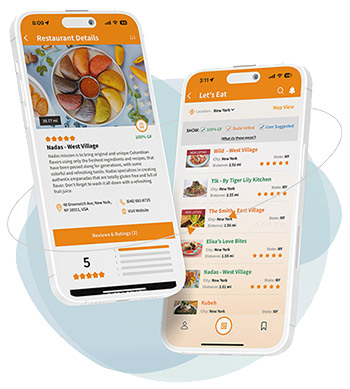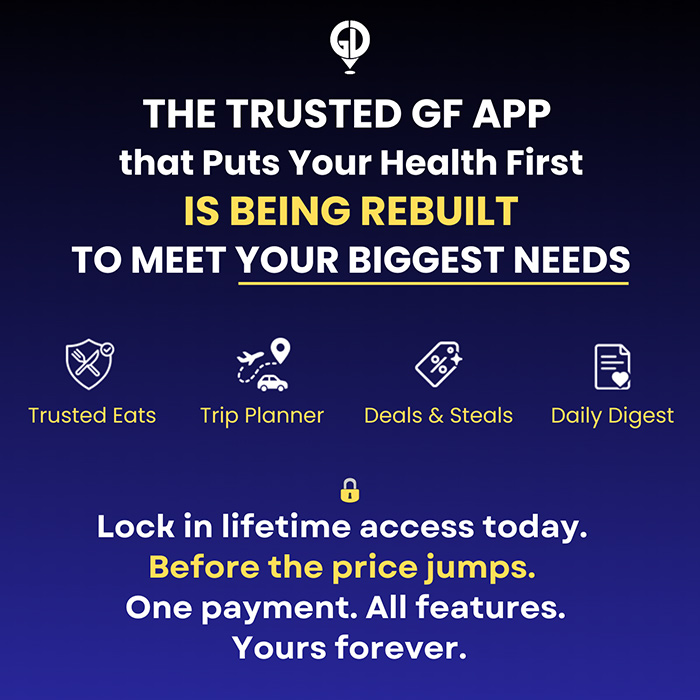I was diagnosed with celiac disease after I already began working from myself and working from home. So those days where celiac just got the best of me, I was able to shut it down. But what about if you work at an office? How do you explain to them that there are going to be times where celiac just kicks your butt and you won’t be at your full capacity? That’s the dilemma in today’s Dear Gluten Dude. Here’s the email:
“Hi Gluten Dude. I’ve been gluten free for seven years now, ever since I got the call from the doc letting me know that I have celiac disease. Initially I did not handle the news well; in fact I ate a piece of Pizza Hut pizza about an hour after the phone call. Nowadays, I know the drill. I know that just a little bit of gluten can put me down for days. I also know that even though I’ve been gluten free for seven years, I still have a disease and it still impacts my body.
There are days when I just have no energy, there are days when I’m curled up on the couch, unable to move because I was the victim of accidental cross contamination somewhere. I’m vigilant, but as you know, there is only so much a person can do.
So, my question is this, how to you deal with an office/work environment? How do you explain that yes, following a GF diet pretty much keeps you healthy, but it isn’t foolproof and sometimes you just need to take a break. How do you explain that you are perfectly capable of doing your job, but that you can’t work 60+ hours a week. Thanks, Gluten Dude. Thank you for being an advocate for our community!”
My first thought? You better be getting paid for 60+ hours a week. My advice? Tune in.
Podcast Transcription
Good morning. Good afternoon and or good evening. And welcome to episode seven of Dear Gluten Dude, where I answer one of the thousands of emails I’ve gotten over the years from the Celiac community. Today we’re talking about Celiac disease and the work environment and what you do when Celiac has just kicked your ass. Once again, today’s episode is sponsored by absolutely nobody, but I do have a mobile app called Gluten Dude on both the Apple and Google stores. It was made specifically for the Celiac and Gluten-free communities to help you live a better life. So please just check it out at Glutendude.app. Now, let’s go to the inbox.
You got mail, baby, yeah.
“Hi, Gluten dude. I have been gluten free for seven years now, ever since I got the call from the Doc letting me know that I have Celiac disease. Initially, I did not handle the news well. In fact, I eat a piece of Pizza Hut pizza about an hour after the phone call. (Not recommended. By the way.) Nowadays I know the drill. I know that just a little bit of gluten can put me down for days. I also know that even though I’ve been gluten free for seven years, I still have a disease and it still impacts my body. There are days when I just have no energy. There are days when I’m curled up on the couch, unable to move because I was the victim of accidental or cross contamination somewhere. I’m vigilant. But as you know, there’s only so much a person can do. So my question is this how do you deal with an office environment? How do you explain that? Yes. Following a gluten free diet pretty much keeps you healthy, but it’s not foolproof. And sometimes you just need to take a break. How do you explain that you’re perfectly capable of doing your job, but that you can’t work 60 plus hours a week?”
All right, first things first. If you’re working 60 plus hours a week, I sincerely hope you are getting paid for 60 plus hours a week. I’m sick and tired of hearing stories of people breaking their backs to their employers and not getting what they deserve. Now onto your celiac disease. I luckily have been working for myself for the last 16 years, and I’ve been working from home for the last 21 years. Especially early in my diagnosis, but even throughout the years I have had stretches where I was comatose. I wake up in the morning, I’d feel good. I’d have a good couple hours and then a wave of exhaustion would just hit me or I’d have to take a nap after lunch or I’d have to crawl into bed by 6:30 or I couldn’t get up in the morning that is the nature of celiac disease. For a lot of us, you have a very serious autoimmune disease. You don’t owe your employers Jack shit, except for the time that you put in and make that time count, by the way. But if you can give 40 hours of quality work per week, that’s great. If you’re expected to do more. Of course, that’s a personal choice. But you go to HR, assuming you have an HR Department, and you say, Listen, I’m working a lot of hours. I have a serious autoimmune disease that can wreck havoc on my body pretty damn randomly. And there has to be some understanding here that I’m going to have some down days and some times where I’m just going to have to take off to rest and recuperate from getting Gluten. Let them know that it doesn’t happen often, but when it does happen, it can be pretty darn debilitating. And just say, look, for the 40 hours I’m here, I will work my butt off. I’ll be the best employee that you have in this company. But when I’m not feeling well, you’ve got to give me some slack. I’ve got celiac disease. I’ll have it for life. It’s out of my control, and I’ll do the absolute best I can do on this job while still managing my disease and taking care of my health.
Now, if your HR person says, well, what the hell is celiac disease, then we have a bit of a problem. If that’s the case, you’ve just got to educate them a little bit. Leave them with some literature or heck send them to glutendude.com (plug!!) and that’ll be sure to set them straight.
And that my friends wraps up episode Seven of Dear Gluten Dude any questions you’d like answered just hit me up on my website, and I’m happy to help.







Perhaps you already know and it is worth repeating: Celiac is a genuine disease and covered by the ADA- American Disabilities Act, which clearly states your employer must accommodate your needs in any way that helps you do our job. First, 60 hours a week is highly stressful for your body especially with celiac- your body is already stressed and you don’t need more. Without divulging your circumstances, is there a way you could cut back to 40? Or request permission to work at home on those down days? I think you need to come clean with your employer and let them in on your health situation, HR too. Consider bringing a copy of that ADA ruling with you as a starting point. What you don’t want to do is make a big deal out of it. Be honest, above board and brief. Whatever reaction you get- deal with it in as positive way as possible. Once your boss understands what’s going on it is likely they will respond in two ways: he/she will either be happy to work with you, or very hesitant to trust you further. Do it soon.
Thanks Sybil!!
This is way off-topic, but what happened to the transcripts? They made things far more accessible for those of us with (severe) hearing impairments.
I’m new to gf life and would really appreciate having access to the info in these audio posts.
Hi Sam. My apologies. I’m trying to find a good transcript solution for the podcast and as soon as I do, I’ll make sure to transcribe all of them. The first two podcasts are transcribed but that’s because I had written everything out ahead of time. The last few were more off the cufff.
Ok…found a solution (that was quick!) and the transcription is above. Will do the others now. Thanks for pushing me a bit.
Thanks, that was really quick. 🙂 It’s sadly not often people take accessibility seriously or bother to do anything about it, even when they’re made aware of issues. So thanks again.